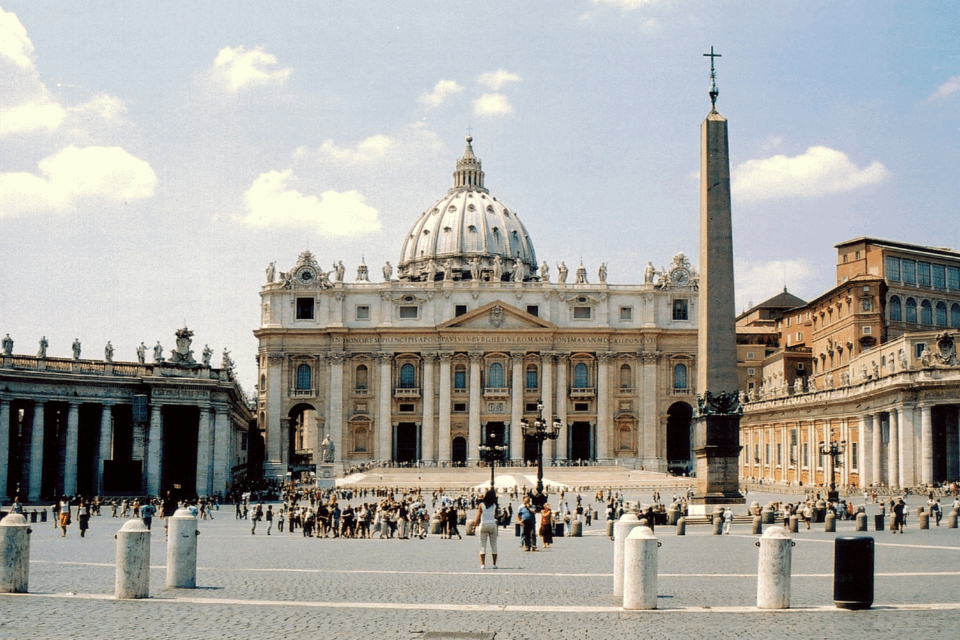Rev. Melissa Claxton, the Michigan Conference’s Ecumenical Officer, reflects on the life and legacy of Pope Francis and how he valued the work of building ecumenical and interfaith relationships.
REV. MELISSA CLAXTON
Ecumenical Officer, Michigan Conference
When I heard the news of Pope Francis’ passing, I grieved along with the rest of the world. Over the past 12 years, I have come to deeply appreciate and value his leadership and the example he set for the Catholic Church and the world. Pope Francis had an unwavering commitment to building bridges and promoting peace. He encouraged unity, not only within Christianity but across all faith traditions. He believed that an increasingly polarized and intolerant world needed to be willing to be in dialogue, and that dialogue was a crucial tool in the fight against violence, intolerance, and extremism in our world. If we ever were to usher in God’s kingdom, we first needed to see one another’s humanity and build on that.
Pope Francis valued the work of building ecumenical relationships, believing that what we had in common outweighed our differences. In 2016, he met with the president of the Lutheran World Federation at an ecumenical initiative to commemorate the 500th anniversary of the Protestant revolt. At this meeting, the pope declared that Christian unity was a priority, saying, “We realize that much more unites us than separates us.” That same year, he drew on John Wesley’s words, “If we cannot as yet think alike in all things, at least we may love alike.”
As we look at his ecumenical work, we see how it mirrors ours as United Methodists. The United Methodist Church’s commitment to this work is grounded in our belief that all Christians are part of the body of Christ. As Paul wrote in 1 Corinthians 12:12-13, “There is one body, but it has many parts. . . . We were all baptized by one Holy Spirit” (NIRV). Unity is crucial if we take the work Christ has called us to seriously. The pope understood this as well. He encouraged Catholics and other Christian denominations to find practical ways in which they could collaborate to address issues that greatly affect our world, such as hunger, homelessness, human trafficking, and climate change. If, instead of working against one another, we work with one another, imagine the difference we could make in the world.
I have been blessed to be part of this work in my own community. During Holy Week, we held collaborative ecumenical services. Our neighboring United Church of Christ congregation hosted the Maundy Thursday service, and we had the service on Good Friday. We are working with the Presbyterian church to develop a new youth program. And every month, we send teams to help at Capuchin, a Catholic social service in Metro Detroit. The opportunities are endless when we begin to work with one another and discover that we are not competing against one another.
Pope Francis was also committed to interfaith work, once declaring that all religions were “paths to God” and likening each tradition to a unique language used to express the divine. It was a powerful message that challenged many and inspired countless others. He participated in interfaith summits and interreligious events with leaders from Judaism, Islam, Buddhism, and Sikhism and demonstrated great respect for Hinduism and other indigenous cultures and beliefs. The purpose of this work was to promote peace and emphasize the importance of respecting the diversity of religions and other faith traditions.
Again, this work mirrors the work of The United Methodist Church. The Council of Bishop’s Office of Christian Unity and Interreligious Relationships (CUIR) encourages dialogue because when we are willing to engage in conversation, we gain mutual respect and understanding, dispelling misinformation and building relationships.
Living in Warren, I am privileged to be in a diverse community that allows me to build relationships with people of different faiths. I have broken bread with our Muslim brothers and sisters for Iftar (fast-breaking evening meal during Ramadan). I have prayed for our country with rabbis, imams, priests, bishops, and other faith leaders. I’ve celebrated Thanksgiving with many of those same people. I have learned about their faith and discovered that we have more in common than what separates us. That is why the work of Pope Francis was so important. It is the same work that The United Methodist Church values dearly.
As the Ecumenical Officer for the Michigan Conference, I encourage you to reach out and build relationships with other faith communities in your neighborhood. Follow the example of Pope Francis. Discover your common ground and build on it.
Last Updated on April 30, 2025

